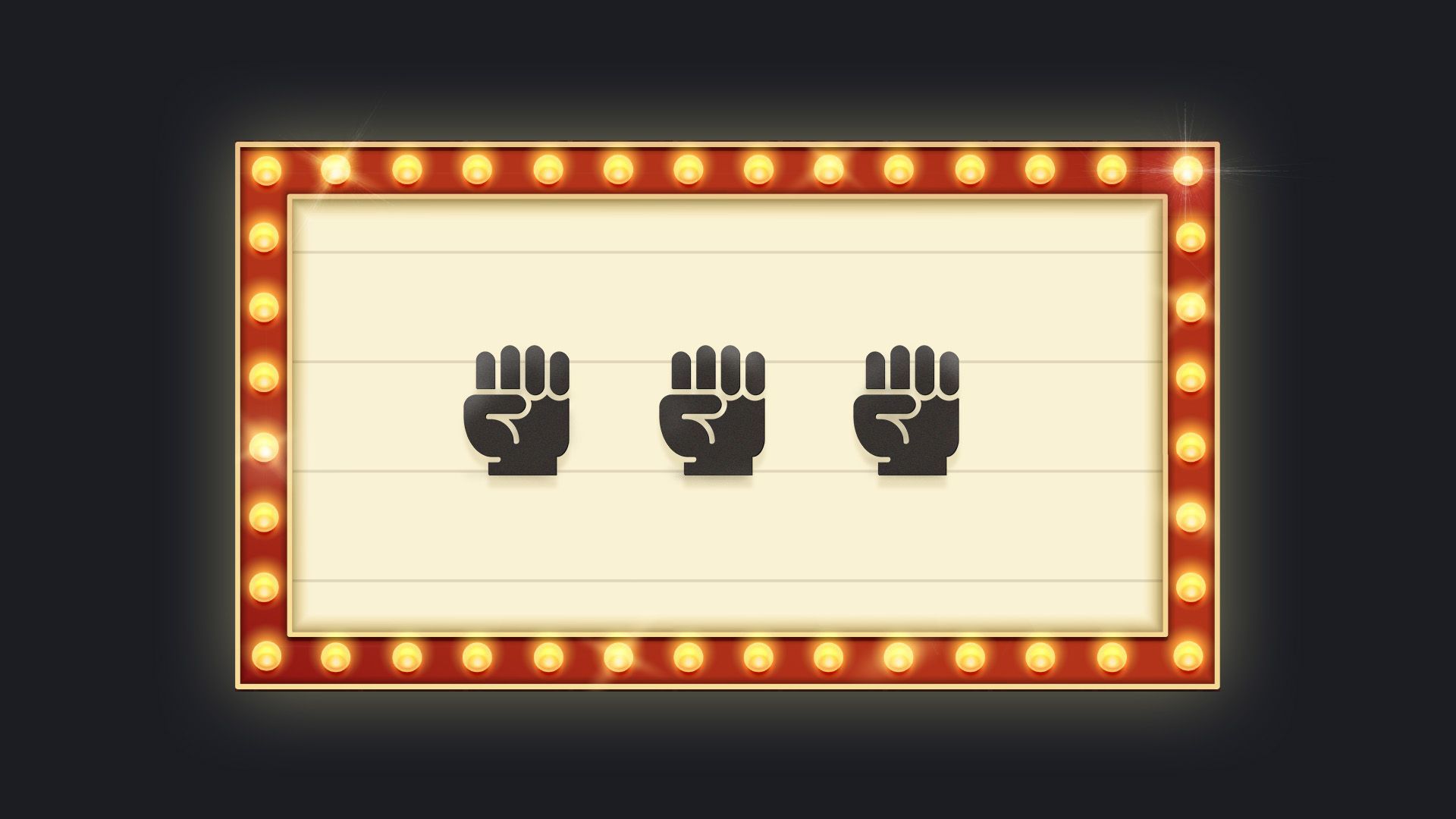Hollywood's writers are preparing to strike

Illustration: Tiffany Herring/Axios
Hollywood writers will be voting until Monday to authorize the first strike in 15 years, setting up a contentious two weeks to get a new labor deal with the studios.
Why it matters: A work stoppage would cripple Hollywood at the time when the business model is undergoing a messy transition to the streaming era.
Driving the news: WGA members can vote until Monday afternoon whetheror not to authorize its leadership to call for a strike if a new deal with the studios is not reached by May 1, when its current labor agreement expires.
- A simple majority of yes votes is needed to put a strike in motion, but it is widely expected that an overwhelming majority will vote in favor.
- That will give the WGA bargaining group more teeth when it returns to the table with The Alliance of Motion Picture and Television Producers, which represents the major studios, networks and streaming services.
- "The companies have never taken our issues seriously without at least the threat of a fight," negotiating committee member Danielle Sanchez-Witzel said in a video supporting a strike vote sent to members this week.
Between the lines: One of the key points of contention is that the WGA wants to overhaul the pay structure.
- The streaming era has upended traditional Hollywood business practices, and WGA is arguing that studios have left writers out of the "peak TV" content boom as residuals for streaming shows are far less than for traditional TV.
- Additionally, the rapid growth of generative AI products is causing concern among writers that studios will use machines to do some of the work done by writers themselves.
The big picture: A strike would force many scripted series to halt production, with late-night talk shows among the first to feel the impact.
- Given the time of the year, most broadcast shows will be in-between seasons. But a strike going deep into the summer would lead to delays for the 2023-24 season.
- Streaming services would be less affected initially because they produce their content well in advance.
What's next: This is just the beginning: The studios' labor contracts with the Directors Guild of America (DGA) and SAG-AFTRA, which represents the actors, both expire at the end of June.
- The DGA, which has a reputation for being more accommodating in its labor talks, traditionally goes first. But it said the studios were not prepared to address their needs for a new deal and allowed the WGA — which is far more combative — to go first.
- The contracts between the studios and the three unions all run for three years. The last negotiations took place in the early days of the pandemic, when all sides were most concerned with keeping the lights on.
Catch up quick: The last time the WGA went first, in 2007, led to a 100-day strike. That action saw 12,000 writers immediately stop working and take to the picket lines outside studios.
- Scripted series saw their seasons abruptly end early, and late-night TV hosts produced shows without their writers in order to keep the rest of their staff employed.
- Many networks resorted to acquired programming from overseas and cheap unscripted shows that were not part of the WGA's contract.
- Two years ago, Hollywood narrowly avoided one of the largest work stoppages in its history when the union that represents below-the-line workers threatened to walk.
What they're saying: Warner Bros. Discovery CEO David Zaslav said during WBD's investor event Wednesday that while he's "optimistic we can get through this in a way that’s fair to all parties" he is "assuming the worst from a business perspective."
- "A strike would be a challenge for the whole industry.”
Go deeper:
- Hollywood's labor fight begins as WGA contract talks start
- Hollywood faces potential work stoppage amid recession fears
Source: Read Full Article

